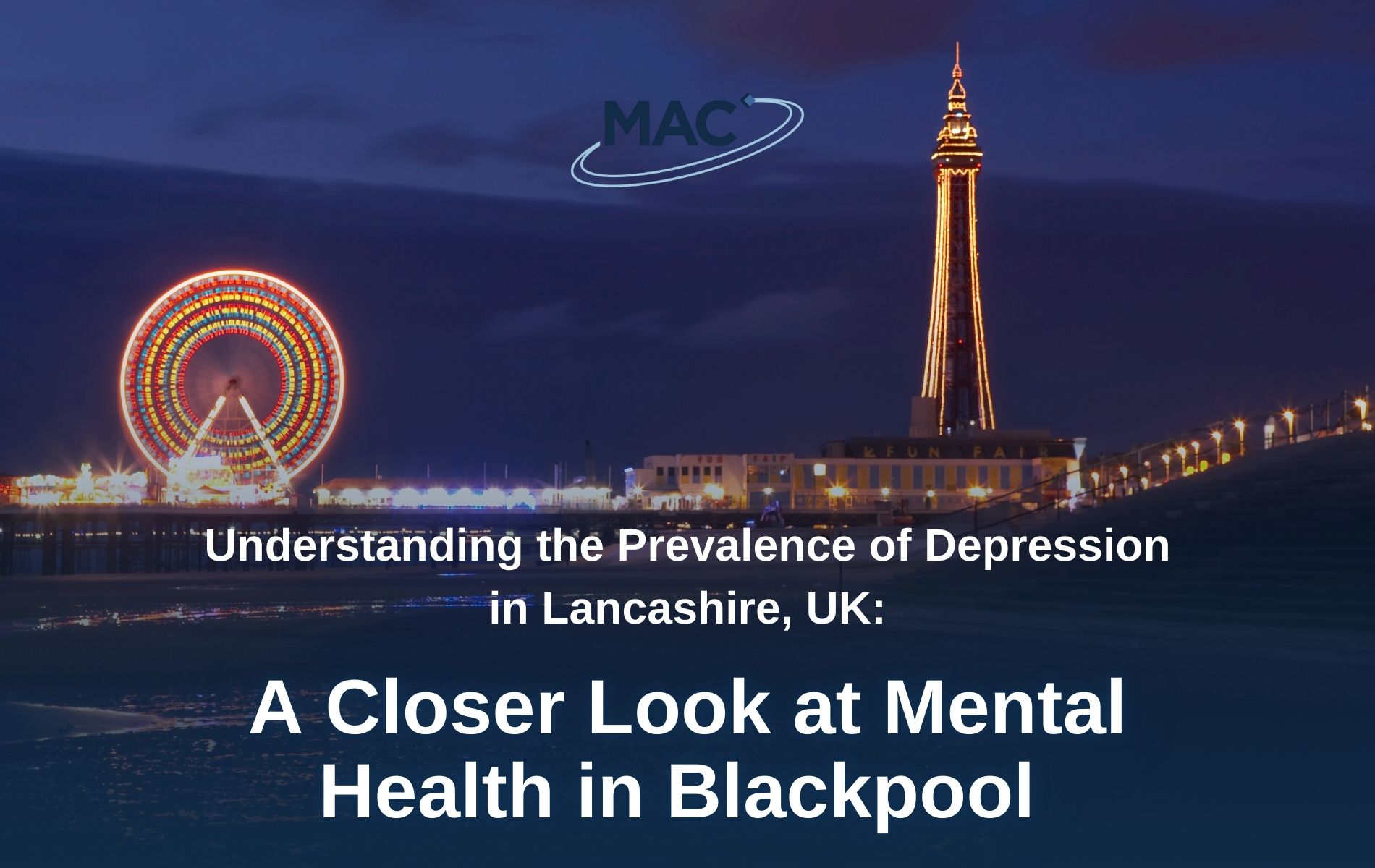Depression, particularly Major Depressive Disorder (MDD), continues to be a significant public health concern in the UK, and worldwide. In 2024, Blackpool stands out as a focal point, with high rates of depression that demand attention and innovative treatment approaches.
The State of Depression in Lancashire
Lancashire, a county known for its vibrant communities and rich history, faces a growing mental health crisis. Depression has seen an uptick in recent years, reflecting national trends where mental health issues have surged due to various factors, including economic stress, social isolation, and the lingering effects of the COVID-19 pandemic.
Within Lancashire, Blackpool has one of the highest rates of depression and some of the highest suicide rates in the country[i]. This seaside town, while famous for its tourism and entertainment such as Blackpool Pleasure Beach, also struggles with significant socio-economic challenges[ii]. According to recent studies, Blackpool has some of the highest rates of antidepressant prescriptions in the UK[iii], which correlates with the high prevalence of depression and related disorders.
Blackpool: A Closer Look at Mental Health in 2024
In 2024, the situation in Blackpool is still concerning. The town has been identified as having one of the highest incidences of depression in the UK[iv]. Factors contributing to this include high unemployment rates, social deprivation, and poverty, all of which exacerbate mental health issues. In fact, of the working-age adults in Blackpool 20% of them are unemployed, making it the most employment-deprived districts in England[v]
Local health services are stretched, with 19.1% of the Blackpool population reported to have moderate or extreme anxiety or depression compared to 12.0% of the population of England as a whole. It is clear that the demand for innovative treatments is higher than ever, especially as traditional antidepressant medications may not be effective for everyone[vi].
Psychedelics for Treating Depression: A New Frontier
Amidst these challenges, there is growing interest in alternative treatments for depression, including the use of psychedelics. Psychedelics like psilocybin (found in magic mushrooms) and DMT (the active component in ayahuasca) have shown promise in treating depression, especially treatment-resistant forms of the disorder.
Research into these substances suggests that they can have profound effects on the brain, helping to “reset” neural pathways and alleviate symptoms of depression. These findings have sparked interest in developing new medications that mimic the effects of these psychedelics but are safer and more controlled for medical use.
MAC Clinical Research: Join Paid Depression Research in Blackpool
For residents of Blackpool and the surrounding areas, there is an exciting opportunity to contribute to this cutting-edge research into new treatments for depression. MAC is conducting a paid clinical trial to investigate the efficacy of a new study medication, GM-2505. This medication is thought to have similar effects to psilocybin and DMT, offering a potential exciting new treatment option for those living with depression.
By participating in this trial, you can play a vital role in advancing mental health treatment while receiving up to £3,398 tax free for your time and commitment. The trial not only offers the possibility of experiencing a novel treatment for depression, but also contributes to the broader scientific understanding of how psychedelics can be used to treat mental health conditions, including anxiety, PTSD and addiction.
Interested in taking part in psychedelic depression research in Blackpool?
If you or someone you know in Blackpool or the wider Lancashire area is struggling with depression, consider participating in this groundbreaking clinical trial. Your involvement could help pave the way for new, more effective treatments for depression. For more information and to see if you qualify to take part in the study, visit MAC Clinical Research’s Depression webpage and take the first step towards making a difference, with support from our caring and experienced medical team.
[i] Blackpool’s Mental Health Crisis, Rethink Mental Illness
[ii] Blackpool JNSA
[iii] An analysis of antidepressant prescribing trends in England 2015–2019
[iv] OHID, Common Mental Health profile
[v] Blackpool JNSA




